"I see no ships"
Fraser Nelson's interesting article for the Spectator here provided a novel presentation of UK employment levels, showing how these had changed over time under each of the most recent five Prime Ministers.
Under the headline Cameron the job-maker it did indeed look at though the most recent increases in numbers working meant that the present administration had created more jobs over its first near-four years than any other since 1979.
Figure #1
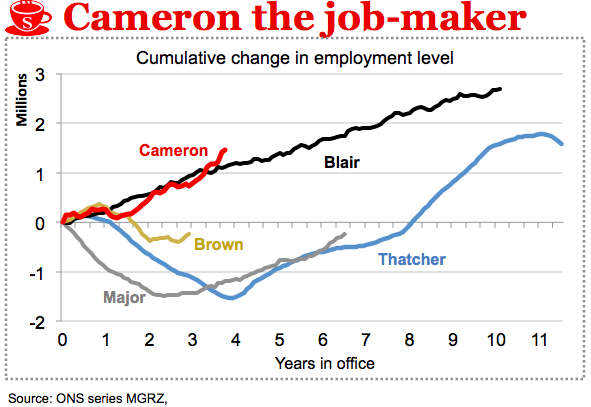
Jonathan Portes kindly recommended another illustration by me of one of the dynamic components of changing employment levels
Figure #2
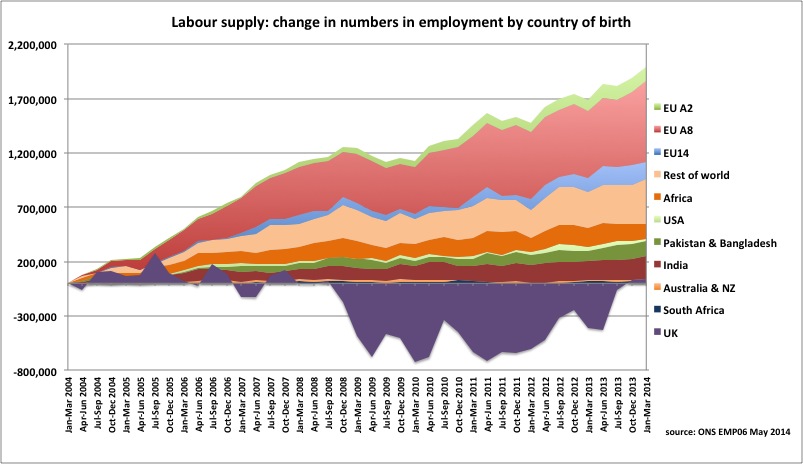
This doesn't seek to make any association of change with particular Prime Ministers, but I thought it might be interesting to use the data source to see what impact supply from abroad might have made to the 'job-making' that Fraser presents, at least for the three most recent PMs.
I'm using the non-seasonally adjusted series MGTM rather than his MGRZ so my lines are more jagged than Fraser's, but it can be seen that this data produces a similar picture, showing clearly Cameron overtaking Blair in job-making over the first near-four years of their respective terms.
Figure #3
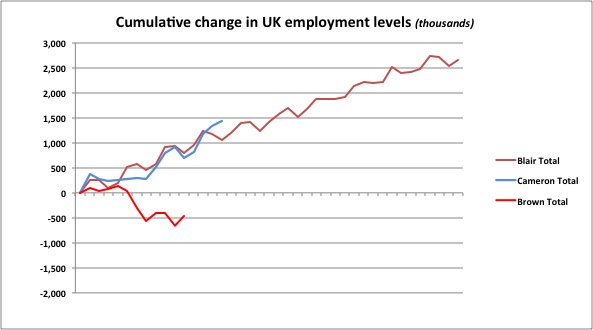
But some of this growth will have been caused by new entrants into the labour market from abroad, so let's look at the extent to which growth occurred among the UK-born population. The picture shows firstly how growth for this group tapered off under Blair and then fell slightly. On the other hand, although Cameron's total growth tracks Blair's, the UK-born component is significantly lower, and only the most recent six months bring Cameron within touching distance of Blair, without quite overtaking him. It will be interesting to see what the next quarter brings.
Figure #4
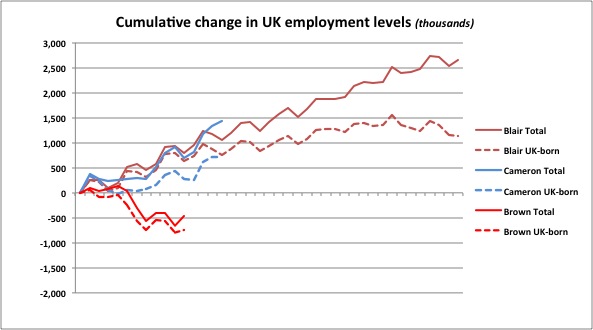
Obviously the numbers in employment aren't everything: rates matter too. Looking at these for the UK-born, it's notable how flat employment rates were over much of Blair's time in office. And in contrast to change in employment levels for the UK-born under Cameron, on rates Cameron appears to have the clear advantage. Things rarely being what they seem though, the picture - following Fraser's approach - shows how things changed as if different starting points were the same.
Figure #5
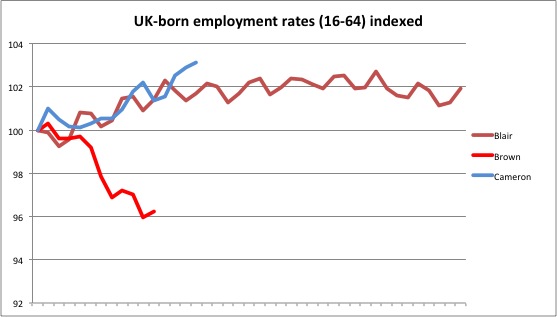
If instead we look at the actual employment rates, the increase under Cameron has not yet brought them back to the typical levels achieved under Blair. This isn't to make any political point at all, but just to observe this as a possible indicator of labour market slack that might not be visible from the headline figures of total employment (or unemployment) whether by level or rate.
Figure #6
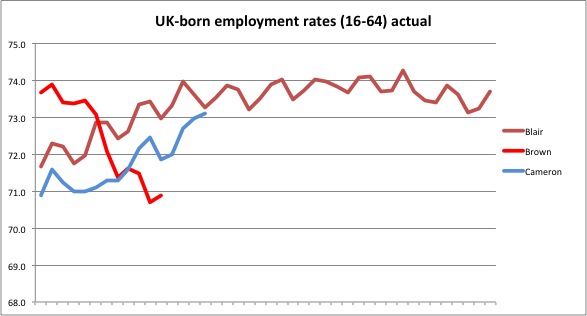
Finally, these data do not distinguish one job from another, and so do not bring out the extent to which the relative proportions of full-time and part-time work have changed, or proportions of employee and self-employed. To be fair to Fraser, he does allude to some of the possible impacts of this at the end of his article.
But Cameron the job-maker? You decide ....
prompts and links ...
Jonathan Portes
Writing in Financial World, Jonathan puzzles over the lack of productivity rebound from recession, and wonders whether ground has been lost permanently here.
Morgan Stanley
There are five key drivers of increases in UK self-employment. Overall these suggest the growth derives from weakness in the economy and is a sign of slack. Their report should download here.
Steven Toft (@FlipChartRick)
Increased self-employment doesn't appear to be necessarily a good thing, looked at internationally and macro-economically here
Benedict Dellot from the RSA
Growing self-employment results from opportunity not necessity, and suggestions to the contrary are myths to be busted here
Adam Lent from the RSA
High self-employment rates aren't a sign of economic weakness, but stirring entrepreneurial spirit here
TUC
The growth of self-employment is part of a trend towards casualised work, likely to hold back wages, and prevent people from having the kind of secure employment they need to pay their bills, save money and plan for the future here